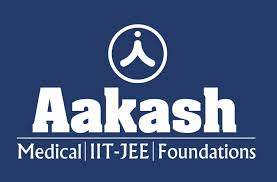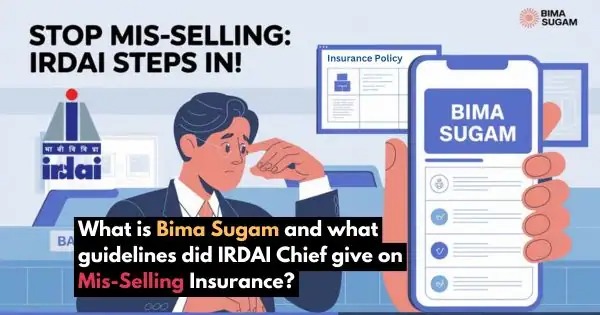1. Heard Dr. Sheelendra Kumar, learned counsel for the petitioner, Mr. Jaideep Narayan Mathur, Senior Advocate assisted by Mr. Rakesh Chaudhari, learned counsel for respondent Nos. 4 and 5 as well as Mr. Mahmood Alam, learned counsel for respondent No. 6. The instant writ petition is directed as a public interest litigation for issuing a writ of quo warranto to the respondent No. 1 to show-cause as to under which authority he holds the office of Chairman of U.P. State Warehousing Corporation (in short ''the Corporation'') as also to issue a writ of prohibition to restrain him from performing as Chairman of the Corporation.
2. The petitioner claims himself a public spirited person having retired from the office of Food Corporation of India. It is stated that after retirement, he is devoting himself to his satisfaction so that some public cause may be solved due to his efforts.
3. The petitioner has raised finger over the appointment of respondent No. 1 (Sri Shiv Pal Yadav) as Director/Chairman of the Board of Directors. Section 20(2) of the Warehousing Corporations Act, 1962 provides that the Chairman of the Board of Directors shall be appointed by the State Government from amongst the Directors of the State Warehousing Corporation with the previous approval of the Central Warehousing Corporation. The petitioner has submitted that since the respondent No. 1 was appointed as Director/Chairman of the Corporation by the same very Government Order dated 16.5.2013, therefore, his appointment as Chairman is not valid as he did not fulfill the conditions precedent to be a Director of the Corporation for appointment as Chairman of the Corporation.
4. Mr. Mahmood Alam, learned counsel for the respondent No. 6 raised objection on the maintainability of the writ petition. It is stated that the petitioner has brought on record an official document as Annexure No. -1 whereas without disclosing the source of its access, more so, through affidavit, it has been verified on the basis of the legal advice.
5. In addition to above, Mr. Jaideep Narayan Mathure, Senior Counsel appearing for the respondent Nos. 4 and 5 submitted that the controversy raised through the instant writ petition has already been set at rest by the Co-ordinate Bench of this Court in Special Appeal Defective No. 1302 of 2013. He placed the order passed in the said appeal before us. A bare perusal of the order shows that this Court has already examined the correctness of the order impugned in the light of the Section 20(1) of the Central Warehousing Corporation Act, 1962 and has expressed the opinion as under:
"12. In the present case, a notification was issued by the State Government on 16 May 2013 recording the concurrence of the Governor to the appointment of the Minister (Cooperative) both as a Director and a Chairperson of the Board of Directors. The submission of the first respondent is that a person can be appointed as a Chairperson of the Board only if he is first appointed as a Director because a Chairperson has to be appointed from amongst the Directors. Prima fade, at this stage, we do not find any illegality in the notification dated 16 May 2013. The notification appoints the Minister as a Member of the Board of Directors. Once he is a Member of the Board of Directors, there can be no bar upon his appointment under Section 20(2) of the Act as Chairperson. The fact that both events have taken place simultaneously is not reflective of any illegality under Section 20(2) of the Act. However, we clarify that these observations shall not come in the way of the disposal of the writ petition and are only confined to the issue which arises at the present stage. Secondly, it has been urged on behalf of the first respondent that since in the writ proceedings before this Court, there was an additional prayer seeking to question the appointment of the Minister as Chairperson of the Board, the learned Single Judge was justified in taking a different view on the issue of interim relief. The submission that the previous approval of the Central Warehousing Corporation was necessary is prima facie contrary to Section 20(2) of the Act, which only stipulates that the State Government could appoint the Chairperson under intimation to the Central Warehousing Corporation. Section 20(2) of the Act does not impose a condition of a prior approval. Hence, atleast at the prima facie stage, it cannot be held that the requirement of Section 20(2) of the Act was breached. Besides that, we have noticed even before the Lucknow Bench, one of the prayers also sought to question the legality of the notification dated 16 May 2013 though, when the petition came up before the learned Single Judge, the said question was not pressed."
6. Learned counsel for the respondents has also raised the question on the petitioner''s locus. It is stated that though the petitioner has posed himself a public spirited person and to be in devotion of his time to do some public work in the writ petition yet he has failed to disclose any such work done by him rather it appears that it is a frivolous petition with oblique motive, which deserves to be dismissed with cost.
7. The scope of the public interest litigation has been considered and discussed by the Hon''ble Supreme Court in various matters. In the case of
"43. In this judgment, we would like to deal with the origin and development of public interest litigation. We deem it appropriate to broadly divide the public interest litigation in three phases:
Phase-I: It deals with cases of this Court where directions and orders were passed primarily to protect fundamental rights under Article 21 of the marginalized groups and sections of the society who because of extreme poverty, illiteracy and ignorance cannot approach this Court or the High Courts.
Phase-II: It deals with the cases relating to protection, preservation of ecology, environment, forests, marine life, wildlife, mountains, rivers, historical monuments etc. etc.
Phase-III: It deals with the directions issued by the Courts in maintaining the probity, transparency and integrity in governance.
........."
8. In the case of
"7. When a particular person is the object and target of a petition styled as PIL, the Court has to be careful to see whether the attack in the guise of public interest is really intended to unleash a private vendetta, personal grouse or some other mala fide object."
9. In the case of
"159. The standard of expectation of civic responsibility required of a petitioner in a PIL is higher than that of an applicant who strives to realise personal ends. The Courts expect a public interest litigant to discharge high standards of responsibility. Negligent use or use for oblique motives is extraneous to the PIL process for were the litigant to act for other oblique considerations, the application will be rejected at the threshold. Measuring the seriousness'' of the PIL petitioner and to see whether she/he is actually a ''champion'' of the cause of the individual or the group being represented, is the responsibility of the Court, to ensure that the party''s procedural behaviour remains that of 111 an adequate ''champion'' of the public cause."
10. Through the instant writ petition, the petitioner has raised the question which has already been considered and dealt with by this Court. Therefore, it appears that the petitioner before institution of the instant writ petition has not done any research work on the subject. Thus, it establishes that the writ petition has been filed in the style of public interest litigation without discharging any responsibility, which shows that the petitioner does not appear to be serious about the issue.
11. In view of the above, we reach the inescapable conclusion that the petitioner''s conduct of filing the instant writ petition cannot be approved. In the result, we hereby dismiss the writ petition with cost of Rs. 25,000/-. The petitioner shall pay the cost within one month failing which it shall be recovered as arrears of land revenue.

